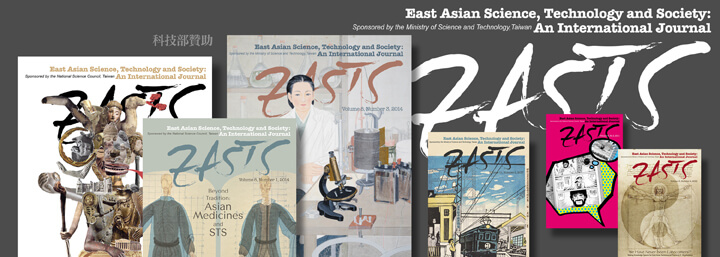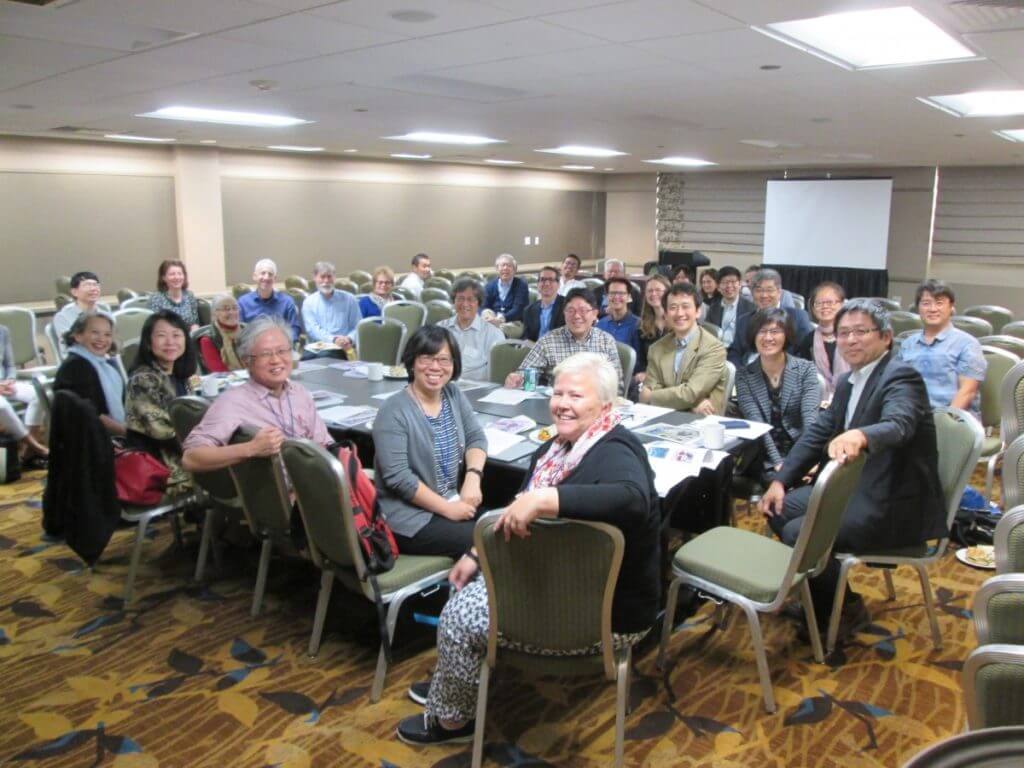
STS Infrastructure Award 2018: East Asian Science, Technology and Society: an International Journal (EASTS)
The STS Infrastructure Award Committee is gratified to concede the editors of the East Asian Science Technology and Society: An International Journal (EASTS) with the 2018 Infrastructure Award.
EASTS was established just over a decade ago but has become an exciting, well-respected forum for publishing STS scholarship. Thanks to each of its issues is possible to enjoy a careful work centered on the wide range of STS topics, that bridge STS with others, amplifying interpretations, languages and insights, presented moreover in distinctive and attractive covers to the audience.
EASTS has also built an impressive network of scholars working in East Asia. This network has notable visibility at 4S’s annual meetings, demonstrating how the infrastructure EASTS has built infrastructures 4S as well. Indeed, academic publishing activities had being tuning with compromised efforts to maintain STS communities in connection and in communication with demands and trends of civil society.
Scholarship published in EASTS brings new visibility to East Asian scholars and topics and the geographic scope of the journal continues to grow. The editors plan to continue consolidating their work in East Asia and expanding them across and outside Asia. So EASTS is thus a key to the deepening transnationalization of STS.
It will particularly fit to celebrate the award at 4S’s 2018 meeting in Sydney, which will showcase and critically examine TRANSnational STS.
2018 Infrastructure Committee Award: Gloria Baigorrotegui (chair) Institute of Advances Studies, University of Santiago of Chile, Steven Jackson, Cornell University, United States of America, Aadita Chaudhury, University of York, Canada.
Acceptance Statement
It is a great honor for East Asian Science, Technology and Society: an International Journal (EASTS) to be chosen to receive the 2018 Infrastructure Award. As its editors, we humbly accept it on behalf of all the authors, reviewers, and editorial staff whose work has made this journal a part of the global STS community as well as a platform for those who are working in and on East Asia.
Founded in 2007 with the support of Taiwan’s National Science Council (now the Ministry of Science and Technology), EASTS is the first English-language journal dedicated to East Asian STS. A collaborative undertaking with Duke University Press, the journal’s editorial board includes key members of the global STS community. It also includes East Asia scholars from Australia, China, Indonesia, Japan, Korea, the Philippines, Singapore, and Taiwan. While focused on East Asia (and Southeast Asia), EASTS is gradually expanding its geographical reach, publishing articles on South Asia; it also actively searches for articles in various disciplines to best present East Asia as both an intellectual subject and a meaningful method for doing global STS.
Through individual submissions and thematic issues, EASTS provides means to achieve these, including several issues that have brought the work of the first generation of Indonesian STS scholars to the international stage and introduced STS perspectives to the study of East Asian traditional medicines. In its Book Review section, EASTS aims to be the gateway to East Asian STS, and publishes reviews of books published in Asian languages as well as in English.
Though a relative newcomer, EASTS has been an active and visible presence at 4S meetings via its editorial meetings, paper sessions, and activities like EASTS night. It in turn makes East Asia visible to the world—through not only the scholarly articles it carries but also the research notes, forums, review articles, and essays. Since its very inception, EASTS has committed itself to being more than just another STS journal; aside from its own publishing role, EASTS has provided an umbrella for a growing network of STS scholars across Asia, transcending the various national STS societies and giving a space for global scholars to work within. By recognizing infrastructure as a network and a platform for building society, we are grateful that our work with the journal has been recognized this way. With this award, EASTS will continue to work closely on an expanding, interactive, and also challenging STS world in which East Asia is not an outsider but has a permanent part.
–Wen-Hua Kuo, on behalf of the editors of East Asian Science, Technology and Society: an International Journal.
2025: Digital STS
2024: Engaging Science, Technology, and Society (ESTS)
2023: Administrative and Editorial Pillars
2022: Administrative and Editorial Pillars of the Society and Field
2020: Catalyst: Feminism, Theory, Technoscience
2018: East Asian Science, Technology and Society: an International Journal (EASTS)
2017: Editors of the Handbooks of Science and Technology Studies
2016: WTMC (Netherlands Graduate Research School of Science, Technology and Modern Culture)


